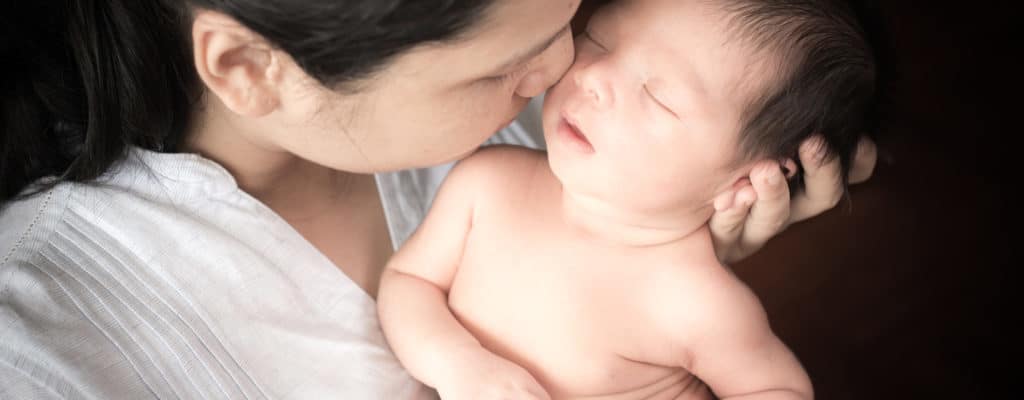
Many women want to become a mother but still do not know what is the most appropriate age to give birth.
Actually the age to give birth depends partly on what you think is best. aFamilyToday Health would like to help you answer this question right away.
Childbirth according to physiological age
Physiologically, the period before and early 20 years is considered the most ideal. That is when a woman's egg cells are at their strongest, fertility as well as other body systems are full of life. Women in their 20s are less likely to suffer from chronic diseases that can be transmitted to their babies, and the likelihood of miscarriage, ectopic pregnancy, stillbirth and infertility at this age is also low.
However, early pregnancy is a disadvantage for women in today's modern society as family organization becomes smaller and women work more and more. Early pregnancy of about 20 years old or younger often entails many social difficulties such as giving birth out of wedlock, interrupted mothers' school work, and these disadvantages can affect social status. Of the woman.
Childbirth is best when you're healthy
The ideal age, physiologically, doesn't seem very good, but what about the ideal social age? You should define "ideal" here as facilitating better care for your baby than just ensuring health during pregnancy. From the above definition, the scientists suggested the best age for pregnancy and birth defects to be 26. Another study based on measuring infant mortality instead of The above measurement of the rate of birth defects confirms the "best" age of 32.
You can also define the "best age" based on the long-term health assurance for pregnant mothers. A survey of healthy and energetic women between the ages of 45 and 95 found that the first pregnant woman at the age of 29 showed less physical illness. Women who are pregnant for the first time in their 30s say they are in better health, and if they are 34 for the first time, they feel less painful and less chronic. Therefore, the researchers concluded that the ideal age for the first pregnancy to ensure long-term physical health of pregnant mothers is 31 years old.
Childbirth is best when a mother can live a long life
If you define "the best age" as the desire to maximize the life of the pregnant mother, this ideal age will be even higher. The researchers interviewed 1890 women who had children about their current health conditions, including chronic illnesses, motor problems, assessed themselves for depression, then assessed is based on the mortality rate and concludes that the best age for the first pregnancy to ensure long-term health and longevity for mothers is 34. Social pressures make late childbirth. At the same time, it raises the question of the beneficial physiological development of giving birth at a young age. The advice for those in their 20s who are planning their way to study, improve at work and get married is that your health is guaranteed if you give birth at 30 years old.
One article also found that if you are 34 pregnant, your life expectancy is 14 years longer than if you were pregnant for the first time at age 18. Another review of the life expectancy of women with children. As they get older, there are some complex problems, at least for women wanting more than one child. While the first pregnancy at 34 years of age does not cause any problems, mothers need to pay more attention that their last pregnancy must be before 35 years old.
One researcher examined social factors influencing health (race, age, income, health insurance, smoking) and then compared the health status of women in 2 Age group: middle aged and after middle age. Post-middle-aged women have a baby after the age of 35 and then do not give birth. The study was not intended to find the age for the first pregnancy but to confirm that 35 should be the age for the last pregnancy. Pregnant women after 35 years of age have higher systolic blood pressure, higher blood sugar, and poorer health and mobility compared to women giving birth before the age of 35.
The decision to have a baby today depends on a lot of factors. You should consider having a baby after the age of 20 and before the age of 35 to ensure the health of both mother and baby. More importantly, after giving birth, parents should make sure they can ensure a healthy environment for their baby to develop, equip with skills to raise and take care of the child and create favorable conditions for the baby. Comprehensive development.












